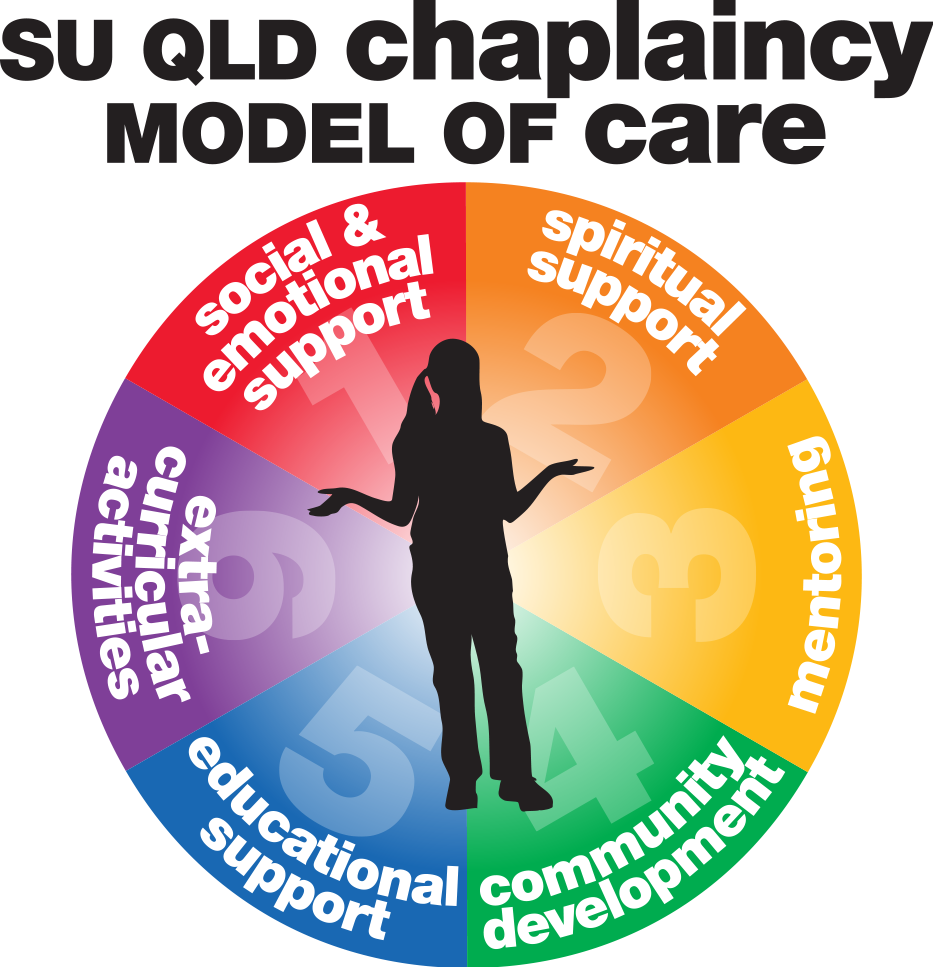![]()
Social and emotional wellbeing is a concept of wellbeing that can be broken down into five smaller areas of concern: self awareness, self management, social awareness, social management, and responsible decision making. Research shows that there are strong links between positive social and emotional wellbeing for children and young people and their successful life outcomes, including educational ones. Schools are very interested in promoting social and emotional wellbeing in their students and school chaplains work alongside other school staff and stakeholders to promote the school’s goals in this area. For chaplains, promoting social and emotional wellbeing takes place on a number of levels. It is a big part of their role, taking up over 40% of their work time.
Firstly, chaplains are involved in activities that promote an overall positive, caring environment across the whole school, often focusing on positive values, attitudes, behaviours and relationships. Across their average 3 day week chaplains often run fun lunch time activities that make the school a more attractive place to be for many students, and of course they make themselves available for and build relationships with students, families and school staff. In our recent chaplaincy activities survey, chaplains were engaged in over 20 significant, positive conversations with students, almost 5 significant, positive conversations with parents/carers and almost 8 significant, positive conversations with staff.
Secondly, chaplains have more serious conversations with students, families and school staff to help them resolve issues that are of concern to them. Through these more formal conversations, chaplains provide general pastoral care, information, resources, referral information and advocacy as required across their average 3 day week. In the recent survey, we found that chaplains were engaged in over 7 formal conversations with students, 1½ formal conversations with parents/carers and almost 2 formal conversations with staff. Chaplains and students talked about a lot of different things in their formal conversations, but the top three things they talked about were family relationships, friendships and bullying. Both staff and parents/carers talked mostly about the concerns they had for students.
Thirdly, chaplains run social and emotional support programs for students. These programs can be more generalised in nature or be aimed at students who are considered to be at-risk of school disengagement or other harmful outcomes. Across terms 1 and 2, chaplains ran over 400 of these programs across the state, assisting almost 12,800 students. In times of grief and loss, chaplains can sometimes run specific programs to help students process their grief. Across terms 1 and 2, chaplains ran 19 of these programs, assisting over 500 students in this way. They also supported over 6,500 people through 35 funerals and memorial services.
Through the social and emotional support part of their role, chaplains are making an important contribution to the overall goals that families, schools and communities have for children and young people. There is a strong link between educational outcomes and social and emotional wellbeing that works both ways – students who are doing well in their lives tend to do better at school and students who to do better at school tend to do well in their lives. By promoting social and emotional wellbeing, chaplains are both directly and indirectly ensuring that children and young people have the best chance possible to experience full lives and a bright future.
